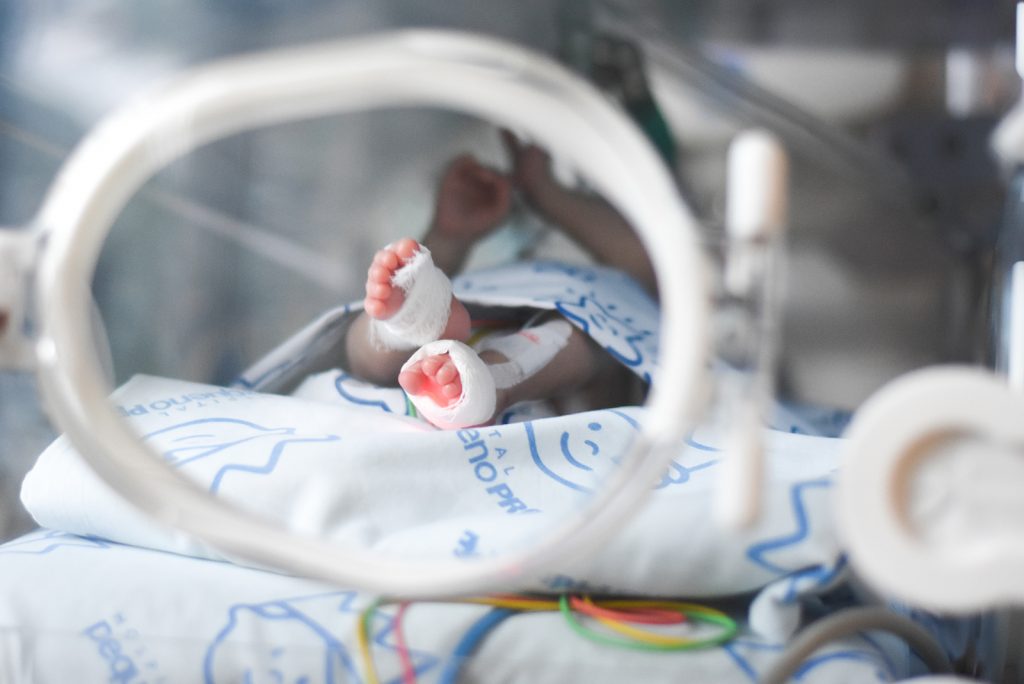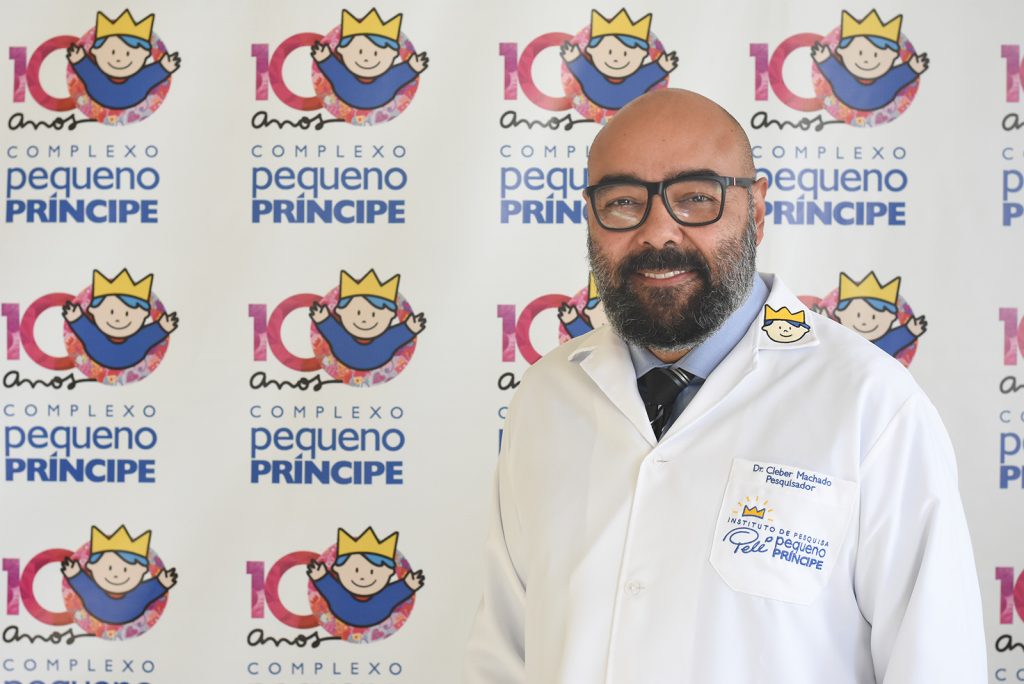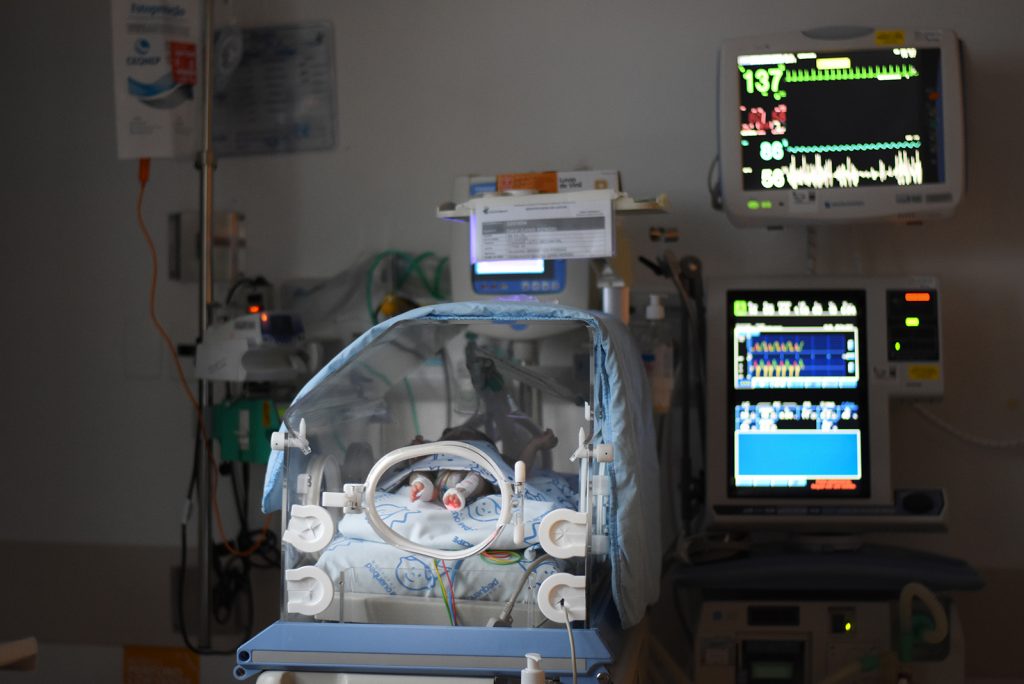Research shows that COVID-19 can affect the placenta of pregnant women, harming babies
The compromising of the organ, responsible for carrying oxygen and nutrients to the fetus, can cause premature births and even deaths

A study developed by scientists from the Pontifical Catholic University of Paraná (PUCPR), in partnership with researchers from the Pelé Pequeno Príncipe Research Institute, concluded that COVID-19 can compromise the placenta of pregnant women, causing premature births and even intrauterine death. The study was published in the journal Frontiers in Immunology, a scientific journal of worldwide reference in immunology.
The scientists compared the placenta of 19 mothers diagnosed with COVID-19 (from the Nossa Senhora das Graças Hospital – HNSG, abbreviation in Portuguese) to that of 19 healthy mothers (from the Federal University of Paraná – UFPR, in Portuguese). The study followed the pairing (maternal age, gestational age and comorbidities between the two groups). The pregnant women in the COVID-19 group were seen at the Nossa Senhora das Graças Hospital, and those in the control group, at the Hospital de Clínicas (HC), both in Curitiba, with the patients’ consent and approval from the institutions’ Ethics Committees.

“When comparing the placentas of mothers with COVID-19 to those of healthy mothers, we realized that those contaminated by SARS-CoV-2 were more likely to show characteristics of vascular malperfusion due to placental, maternal and fetal thrombosis,” explains scientist and professor Cleber Machado de Souza, who is part of the group of researchers in this study.
“The placenta is the baby’s lung. It is where the baby breathes and receives nutrients, through the mother’s vessels. If COVID-19 affects the mother’s vessels, the baby doesn´t receive nutrients and oxygen,” says professor and PUCPR researcher Lúcia de Noronha. In this sense, consequences for the babies were verified, such as intrauterine death, death right after birth, and premature births. Some newborns also needed to be hospitalized for having been infected with the virus.
Patients with the mild form of the disease, however, gave birth to healthy babies and their placentas showed no lesions from SARS-CoV-2 infection.

Prevention is paramount
Professor Souza argues that prevention is still the best way for pregnant women not to get infected with COVID-19, since, so far, there are no specific therapies proven effective for treating the disease.
“In some situations, obstetricians prefer to induce premature labor to remove the baby and prevent him from dying in utero. Even so, some children have been infected with the coronavirus from their mothers, as the disease can be transmitted through the placenta. Newborn babies with COVID-19 can develop the severe form of the disease, dying,” says Lúcia.
Next steps
According to Souza, the research will continue, now evaluating the genetic aspects involved. “We want to understand why some women have a greater propensity to develop thrombosis while others do not. We will extract DNA from these 38 placentas [19 from mothers with COVID-19 and 19 from healthy mothers] and perform the process of genotyping genes associated with the event of thrombosis. This approach seeks to find genetic markers associated with higher risk and thus would allow early identification of patients more susceptible to the worst thrombotic outcome in pregnancy. And this could, in the future, help to establish safer conducts in the conduction of pregnancies associated to COVID-19,” he highlight.
More
Pequeno Príncipe Gala 2021 will be held on October 22nd
In the second year of the coronavirus pandemic, the event which will be streamed by YouTube proposes the celebration of science and life
Pequeno Príncipe Hospital reaches the mark of 15,000 catheterizations
The procedure carried out at the institution, exclusively in children and adolescents, treats and helps in the diagnosis. The Cardiology Service is a national reference








